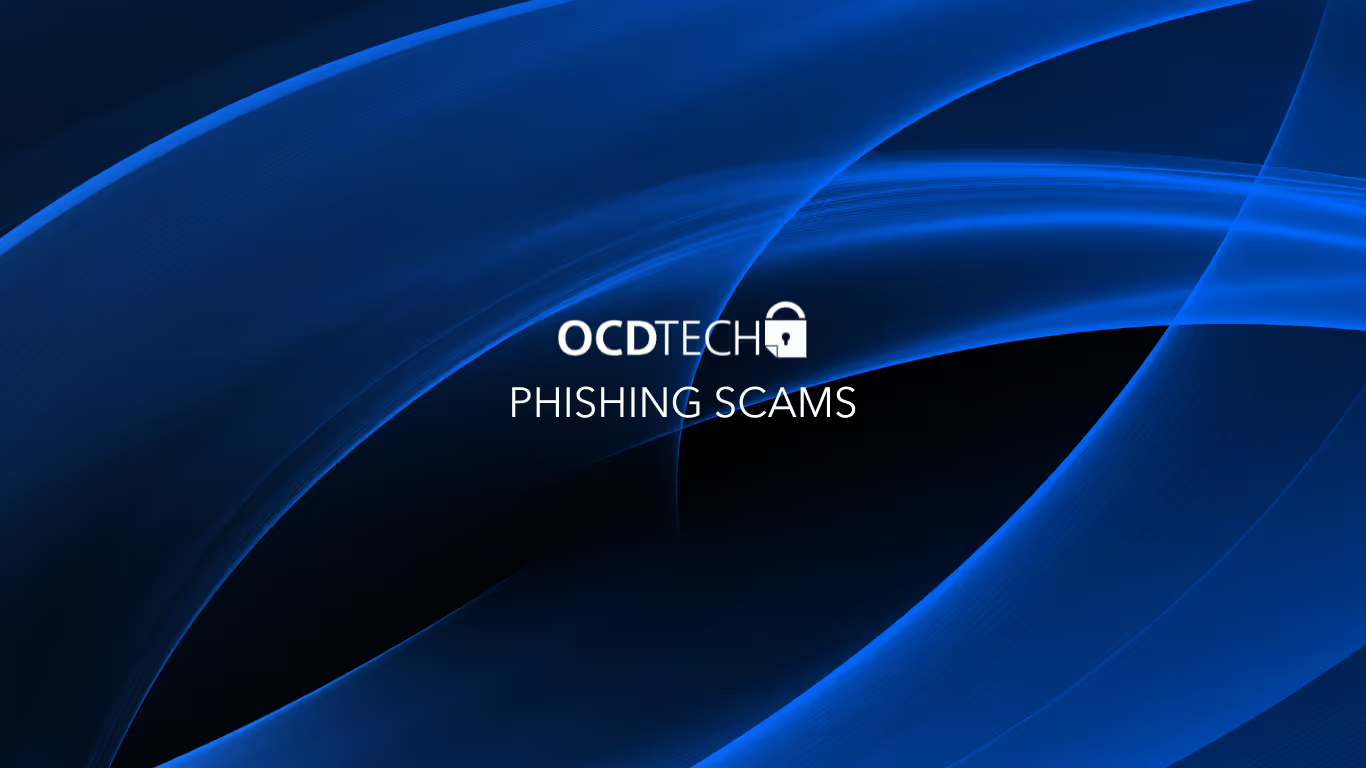By
OCD Tech
April 11, 2024
•
4
min read

Ever gotten an email that seems a little too good to be true, or one that freaks you out by threatening to close your account? These could be phishing attempts! Phishing scams are a sneaky way for criminals to steal your personal information, like passwords or credit card numbers.
But don't worry, you can be a phishing pro at spotting these scams. Here's what to watch out for:
Red Flag #1: Super Urgent or Scary
Phishing emails often try to pressure you into acting quickly. They might say your account is about to be suspended or there's a limited-time offer you can't miss. Remember, legitimate companies won't pressure you into taking immediate action.
Red Flag #2: Something Smells "Phishy" About the Sender
Is the email from an unknown address, or one that doesn't quite match a real company's email format like "[companyname]@[legitimate company domain]". Be cautious! Always check the sender's email address carefully.
Red Flag #3: Grammatical Gaffes and Typos
Professional companies proofread their emails. If an email is riddled with typos, grammatical errors, or strange wording, it's a red flag.
Red Flag #4: Suspicious Attachments or Links
Don't click on attachments or links in emails from unknown senders. These could contain malware that steals your information once you click.
Red Flag #5: They Ask for Personal Information... Now
Legitimate companies won't ask for your password, credit card number, or other sensitive information via email. If an email asks for this type of information, delete it!
Why You Should Care
Phishing is a major threat. According to the 2023 Data Breach Investigations Report by Verizon, phishing emails were involved in over 80% of data breaches. That's a scary statistic!
What to Do If You Spot a Phishing Scam
Be confident, be cautious! By being aware of these red flags, you can protect yourself from phishing scams and keep your personal information safe.
REQUEST YOUR FREE PHISHING SECURITY TEST HERE.
SECURING YOUR PATH

Audit. Security. Assurance.
IT Audit | Cybersecurity | IT Assurance | IT Security Consultants – OCD Tech is a technology consulting firm serving the IT security and consulting needs of businesses in Boston (MA), Braintree (MA) and across New England. We primarily serve Fortune 500 companies including auto dealers, financial institutions, higher education, government contractors, and not-for-profit organizations with SOC 2 reporting, CMMC readiness, IT Security Audits, Penetration Testing and Vulnerability Assessments. We also provide dark web monitoring, DFARS compliance, and IT general controls review.
Contact Info
.svg)
OCD Tech
.svg)
25 BHOP, Suite 407, Braintree MA, 02184
.svg)
844-623-8324
.svg)
https://ocd-tech.com
Follow Us
Videos
Check Out the Latest Videos From OCD Tech!
Services
SOC Reporting Services
– SOC 2 ® Readiness Assessment
– SOC 2 ®
– SOC 3 ®
– SOC for Cybersecurity ®
IT Advisory Services
– IT Vulnerability Assessment
– Penetration Testing
– Privileged Access Management
– Social Engineering
– WISP
– General IT Controls Review
IT Government Compliance Services
– CMMC
– DFARS Compliance
– FTC Safeguards vCISO